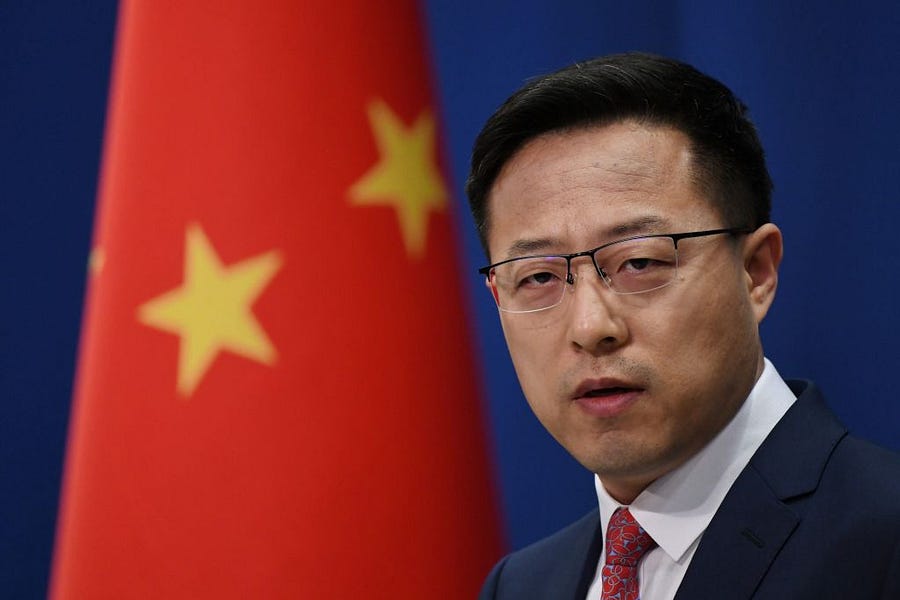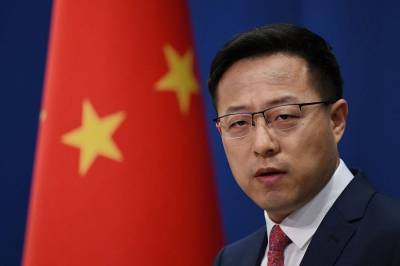A new analysis of the Chinese Communist Party’s (CCP) presence on social media raises important questions about how disinformation and propaganda are currently being spread online. The study, published by the Oxford Internet Institute, documents part of the CCP’s social media strategy. The researchers analyzed “every tweet and Facebook post produced by PRC [People’s Republic of China] diplomats and ten of the largest state-controlled media outlets between June 2020 and February 2021.”
The study’s key finding is that the CCP’s diplomats and state-controlled media organs are increasingly prolific on Twitter and Facebook—two platforms that are prohibited inside China itself.
Over the course of a nine-month period, the CCP’s “diplomats tweeted 201,382 times, averaging 778 times a day.” The CCP diplomats’ tweets “were liked nearly seven million times, commented on one million times, and retweeted 1.3 million times.” The Chinese diplomats “also produced 34,041 posts over this period” on Facebook. Meanwhile, the CCP’s “media outlets managed 176 accounts on Twitter and Facebook,” posting 700,000 times, with 355 million likes, and “over 27 million comments and re-shares in the study period.”
That sounds like a lot, and maybe it is, but it is difficult to put these figures into perspective. To do so, we’d have to perform a comparable study of U.S. diplomatic Twitter and Facebook pages, or of the social media presence for other countries, to see how the CCP’s activity compares. Such benchmarks aren’t readily available.
On the other hand, it should be noted that this is essentially free marketing for the CCP with very little downside. Chinese citizens aren’t exposed to messaging by the U.S. government in the same fashion that Americans can interact with CCP propaganda. The CCP strictly controls social media platforms inside China. For instance, the CCP would never allow Secretary of State Blinken to openly criticize Beijing’s human rights abuses in Xinjiang on Sina Weibo, the Chinese version of Twitter. Meanwhile, Chinese diplomats can say almost anything on Twitter and Facebook, often in English no less.
This creates an obvious structural imbalance in how Twitter and Facebook, in particular, are used by governments. Even worse, the OxInternet Institute’s study notes that CCP accounts often escape the labeling that is supposed to come with government-run accounts. The study focused on 189 Chinese diplomat accounts on Twitter, finding that only 14 percent of them are “properly labeled.” This means that users could easily interact with an account run by an authoritarian regime and never know it.
But how effective is the CCP’s presence on Twitter and Facebook? There is no definitive answer. There are some reasons to suspect that much of it is just empty bluster with little impact.
The study’s authors try to gauge inauthentic interactions versus authentic, with the former being driven by bots or other accounts that are suspected of being controlled by the CCP. The authors show how a relatively small number of accounts retweet, like or share the Chinese diplomats’ posts. The implication is that much of this activity is inauthentic, meaning it is not really changing or influencing many minds. In addition, a fair number of accounts that were subsequently suspended by Twitter shared a disproportionate number of the posts. This, again, indicates that the activity was largely inauthentic.
The authors conclude “that a significant proportion of retweet engagement is generated by a small number of super-spreader accounts. The most active 0.1% of super-spreaders are responsible for more than 25% of all PRC diplomat retweets, while the most active 1% contribute to nearly half of all retweets.”
All things considered, that is good news. Still, there are plenty of reasons for concern.
The CCP’s diplomatic assault on Twitter is relatively new. Most of the diplomats’ accounts were registered in the past two years. This development is part of the CCP’s aggressive “wolf warrior” diplomacy, which seeks to harass and intimidate Beijing’s opponents. The CCP is likely experimenting with Twitter, Facebook, and other social media platforms to see what it can accomplish without serious repercussions. For example, the Oxford Internet Institute produced a separate case study on China’s experimentation with accounts targeting the UK.
And a separate study published by ProPublica last year documented how the CCP has created an army of fake accounts, some of which were hacked and hijacked from real users, to spread propaganda online. The messaging dealt with the coronavirus pandemic, protests in Hong Kong and other topics Beijing finds to be politically sensitive.
We are still in the early stages of understanding how disinformation and propaganda are spread in the era of social media. So, this is one of those topics that will require careful, ongoing analysis. We know this: The CCP is analyzing and experimenting with social media in the West, looking for ways to influence opinions.





Please note that we at The Dispatch hold ourselves, our work, and our commenters to a higher standard than other places on the internet. We welcome comments that foster genuine debate or discussion—including comments critical of us or our work—but responses that include ad hominem attacks on fellow Dispatch members or are intended to stoke fear and anger may be moderated.
With your membership, you only have the ability to comment on The Morning Dispatch articles. Consider upgrading to join the conversation everywhere.